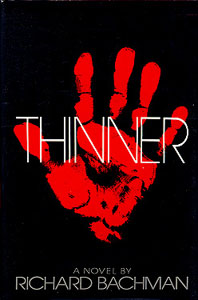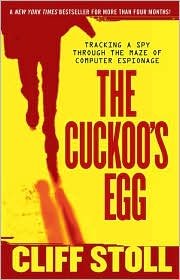 In 1968 or 1969 Paul McCartney said a wistful and startling thing in an interview. He said the Beatles had discussed the idea of going out on the road as a bar-band named Randy and the Rockets. They would wear hokey capes and masks à la Count Five, he said, so no one would recognize them, and they would just have a rave-up, like in the old days.
In 1968 or 1969 Paul McCartney said a wistful and startling thing in an interview. He said the Beatles had discussed the idea of going out on the road as a bar-band named Randy and the Rockets. They would wear hokey capes and masks à la Count Five, he said, so no one would recognize them, and they would just have a rave-up, like in the old days.
When the interviewer suggested they would be recognized by their voices, Paul seemed at first startled … and then a bit appalled.
Stephen King
Why I Was Bachman
In The Grapes of Wrath John Steinbeck ended a famous soliloquy with the conclusion “we can’t start over.” This may be true, but that has not stopped some writers from trying.
Writing as someone else, that is, under a pseudonym, has always enjoyed a subversive and at times roguish popularity among writers. Over the years there have been many motivations for hiding one’s name -- Mary Ann Evans, author of Silas Marner, for example, wrote under the pseudonym of George Eliot because she believed that to be taken seriously in the mid-1800s an author really ought to be male. Thankfully, we are well past such “necessities,” but, for a host of reasons, authors still, at times, give in to a temptation to write as someone else.
Mysteries, which are all about secrets, have always been a particularly fertile ground for cultivating new identities. Ellery Queen, a pseudonym on his (or their) own, also wrote pseudonymously as Barnaby Ross. Earl Stanley Gardner wrote the Perry Mason mysteries under his own name, but wrote his D.A. Doug Selby mysteries under the name of A.A. Fair. Ruth Rendell writes not only as herself, but also as Barbara Vine. The reasons these writers,and many others, decided to write as someone else are varied, but among particularly popular novelists, such as those who have staked out claims to the top spots on The New York Times list, there is a particularly tantalizing temptation to coin a new name. They want to prove John Steinbeck wrong.
 |
| J. K. Rowlings and friend |
Apropos of all of this, on April 30 Mullholand Books published a new mystery, The Cuckoo’s Calling, by “first time author” Robert Galbraith, described on the book jacket as an ex-military officer making his first foray into fiction writing. Although a debut novel, The Cuckoo’s Calling attracted the attention of a number of reviewers, including The New York Times, which had this to say about the book:
Robert Galbraith has written a highly entertaining book... Even better, he has introduced an appealing protagonist in Strike, who's sure to be the star of many sequels to come.... its narrative moves forward with propulsive suspense. More important, Strike and his . . . assistant, Robin (playing Nora to his Nick, Salander to his Blomkvist), have become a team - a team whose further adventures the reader cannot help eagerly awaiting.
There was also a shared theme in the reviews of the book -- it seemed too good, too polished, for a first time work. The reviewers began to wonder, and to speculate.
In any event, buoyed by similarly favorable reviews The Cuckoo’s Calling was doing passably well for a first novel, selling 8,500 copies within a few weeks of publication and garnering two inquiries concerning possible film adaptations. It was then that the wife of a lawyer in the London law firm that had done legal work for the book, revealed on Twitter, contrary to the terms of a secrecy agreement, that the author was none other than J. K. Rowlings. Rowlings has now admitted authorship, settled with the law firm, which has committed to making a large donation to the same soldiers’ charity that is also receiving the royalties from the book.
When asked why she elected to begin a new series using a pseudonym, and writing as a man, Ms. Rowlings had this to say:
I was yearning to go back to the beginning of a writing career in this new genre, to work without hype or expectation and to receive totally unvarnished feedback. It was a fantastic experience and I only wish it could have gone on a little longer.
I [also] wanted to take my writing persona as far away as possible from me, so a male pseudonym seemed a good idea. I am proud to say, though, that when I “unmasked” myself to my editor David Shelley who had read and enjoyed The Cuckoo’s Calling without realizing I wrote it, one of the first things he said was “I never would have thought a woman wrote that.” Apparently I had successfully channeled my inner bloke!
George Eliot could not have said or done it better!
 |
"Richard Bachman" from the
Thinner book cover (Actually Stephen King's
agent's insurance broker) |
J. K. Rowling was not the first best selling author to succumb to the temptation to begin again. Stephen King attempted the same feat in the 1980s when, writing as Richard Bachman, he published five novels before being outed in 1985 just about the time that the fifth Bachman book, Thinner, was beginning to do well in the bookstores.
Stephen King reportedly had several reasons for inventing Bachman. First, King is remarkably prolific and his publisher, early on, feared that publishing at the rate King wrote -- more than a book a year -- would flood the market. So a pseudonym created a new outlet.
But part of it was, in King’s words, the same hunger that tempted J. K. Rowling’s to invent Galbraith. Here is what King said in Why I Was Bachman, the essay that accompanies the 1985 omnibus volume The Bachman Books collecting the first four of Richard Bachman’s novels:
You try to make sense of your life. Everybody tries to do that, I think, and part of making sense of things is trying to find reasons . . . or constants . . . things that don’t fluctuate.
Eveyone does it, but perhaps people who have extraordinarily lucky or unlucky lives do it a little more. . . . Part of you wants to think that you must have been one hardworking S.O.B. or a real prince or maybe even one of the Sainted Multitude if you end up riding high in a world where people are starving, shooting each other, burning out, bumming out, getting loaded, getting ‘Luded.
But there’s another part that suggests it’s all a lottery, a real-life game-show not much different from “Wheel of Fortune” or “The New Price is Right” . . . . It is for some reason depressing to think it was all -- or even mostly -- an accident. So maybe you try to find out if you could do it again.
Or in my case, if Bachman could do it again.
King’s experiment was also cut short. The next Bachman book was to be Misery, and, in King’s words, “I think that one might have taken 'Dicky' onto the best-seller list.” Rowling’s experiment was cut way short, even though her next Cormoran Striker mystery will still be published under Galbraith’s name in 2014.
 |
| Robert Galbraith and Richard Bachman sharing a stage |
It is interesting to compare Galbraith and Bachman with, respectively, Rowlings and King. Galbraith's mystery is much grittier than any of the Harry Potter books. The Cuckoo's Calling is prone toward the use of idle profanity, darkly modern themes and urban settings. And Bachman is also darker than King. Bachman’s The Long Walk is sort of like The Hunger Games but without the love story -- just children dying in a televised contest. And Rage, centering on a young gunman taking over a school room, has been withdrawn from the market out of concern as to what it might prompt or might already have prompted.
But while the pseudonym authors differ markedly from their creators, behind the curtain, nonetheless similar narrative voices are discernible. Before being outed by a meticulous book store clerk who found an obscure reference to King in one of the Bachman copyright documents, there was rampant speculation that Bachman was King premised on the similarities of sentence structure, word usage, and plots. And today, 30 years after King’s Bachman experiment, apparently computerized digital comparisons between the Harry Potter books and The Cuckoo’s Calling were on the verge of outing Rowling when that tweet from the lawyer’s wife pulled the rug out from under her.
As noted, Galbraith and Bachman were doing respectably well before their identities were pierced. But sales in each case went ballistic when the pseudonym mystery was cracked. The Washington Post reported that “the news helped [The Cuckoo’s Calling to] climb straight to the top of Amazon’s bestseller list” the next week. And Richard Bachman’s Thinner was selling very well when King was outed. “But the fact,” King observes, “that Thinner did 28,000 copies when Bachman was the author and 280,000 copes when Steve King became the author, might tell you something, huh?”
Galbraith will continue to write mystery novels, but as a known pseudonym of Rowlings. Bachman, according to King, died of cancer of the pseudonym in 1985, although some “posthumous” Bachman works have been published since then.
In the end, what can we say of these experiments? Do they ultimately prove that hard work wins out or do they validate the lightning strike of luck? Both The Cuckoo’s Calling and the Bachman novel The Long Walk were rejected by publishers that would have jumped at the works if armed with a little foreknowledge.
Experiments cut short may ultimately yield no good answer.
But on a side note, consider this. Amidst the confusion that attended the news that Rowlings was, in fact, Galbraith, and the ensuing rush to secure copies of her new book, Ron Charles of The Washington Post reported an item that can keep us pondering:
The Cuckoo’s Calling isn’t the only Cuckoo title on The Post’s list this week. Cliff Stoll’s nonfiction story, The Cuckoo’s Egg: Tracking a Spy through the Maze of Computer Espionage is No. 4 on the nonfiction paperback list.
Why would a book from 1989 pop up now? Are NSA employees buying copies in bulk? Are Rowling fans confused about her pseudonym? Or is it just wizardry?
That lightning may have struck Cliff Stoll. Assuming, of course, that he is Cliff Stoll.






